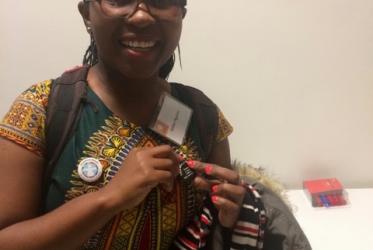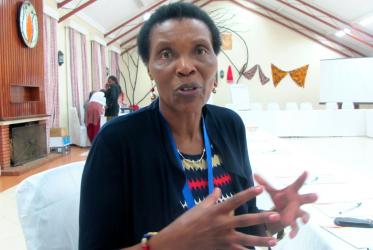Displaying 1 - 18 of 18
Workshop on HIV stigma, treatment adherence opens in Tanzania
29 September 2021
Moravian Church in Tanzania launches Thursdays in Black
10 September 2019
‘Sokoni’ transforms marketplace into mission
13 March 2018
Missional formation plenary encourages discipleship
12 March 2018
Bossey’s new missiology professor shares world of Africa and Europe
01 February 2017
Methodist Church in Kenya consecrates second woman bishop
05 February 2016










